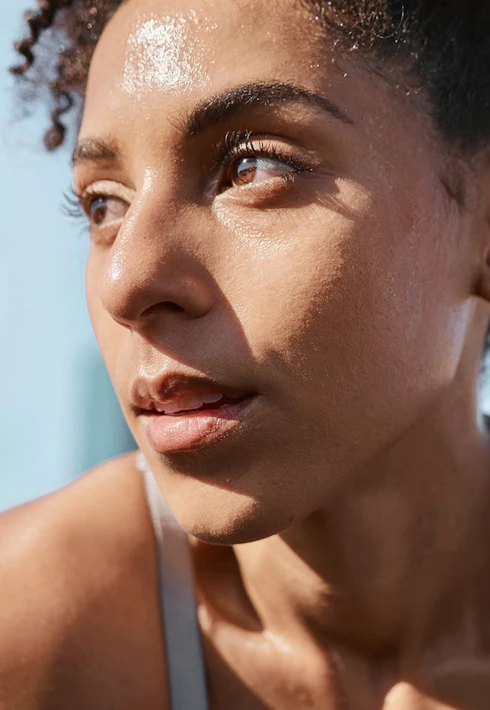Time to read: 3 min
What you need to know about sweating
Why do we sweat, what factors determine how much we sweat, and what does it mean if you sweat a lot or very little? Keep reading and find out how it all works.
Why do we sweat?
Sweating helps protect us from overheating. When we sweat, moisture on our skin evaporates, and we cool down. Other benefits of sweating include:
- Filtering out toxic substances
- Anti-aging effect
- Killing bacteria on the skin
What your sweat says about your effort
First of all, let's debunk a myth: sweating profusely doesn't always mean your workout is effective, and conversely, you can have a highly effective workout without sweating much. Here's why:
Intensity is just one factor in the amount of perspiration. In general, the more you exert yourself, the more heat your body generates, which in turn stimulates sweat production. This is because sweating serves the purpose of cooling down your body. You can also have a very effective workout at a lower intensity or with more breaks in between, resulting in less sweat.
Sweaty factors
Other factors that determine how much you sweat include your genetics, gender, and weight. People with higher body weight often sweat more because there is a larger body surface area to be cooled. Men tend to sweat more than women. And if you're highly active, especially as an endurance athlete, your body knows exactly what to do during a workout: sweat! Fit individuals are often very good at sweating, but not always.
Environmental factors such as temperature and humidity also influence how quickly sweat evaporates and becomes noticeable. For example, you may sweat a lot outdoors in a dry, windy environment without even realizing it. Some people, around 3 to 6% of the population, struggle with hyperhidrosis, where they sweat much more than average.
How much do you sweat during a workout?
During an hour of exercise, the average person sweats about one liter of fluid. Sometimes you may sweat more, losing up to 2 liters of fluid per hour during intense efforts in hot and humid conditions. If you barely sweat while exercising, there's no immediate need to panic. It could be because you're not exerting yourself enough or it might be genetically determined, or you may not notice the sweating due to weather conditions.
Prevent dehydration
How much you sweat is one factor, but not the only indication of how effective your workout is. Whether you sweat a lot or not at all, it's always important to maintain your hydration level.
When you sweat, you lose fluid and important electrolytes. If you don't replenish them, you run the risk of dehydration. Check your urine to determine if you're adequately hydrated. A dark color often indicates that you're not drinking enough. Make it a habit to hydrate properly before your workout. This will help prevent fatigue and muscle cramps.
Pro tip: If you're exercising for an hour or longer in the summer heat, it's highly advisable to replenish electrolytes with a supplement or with Active Water.
